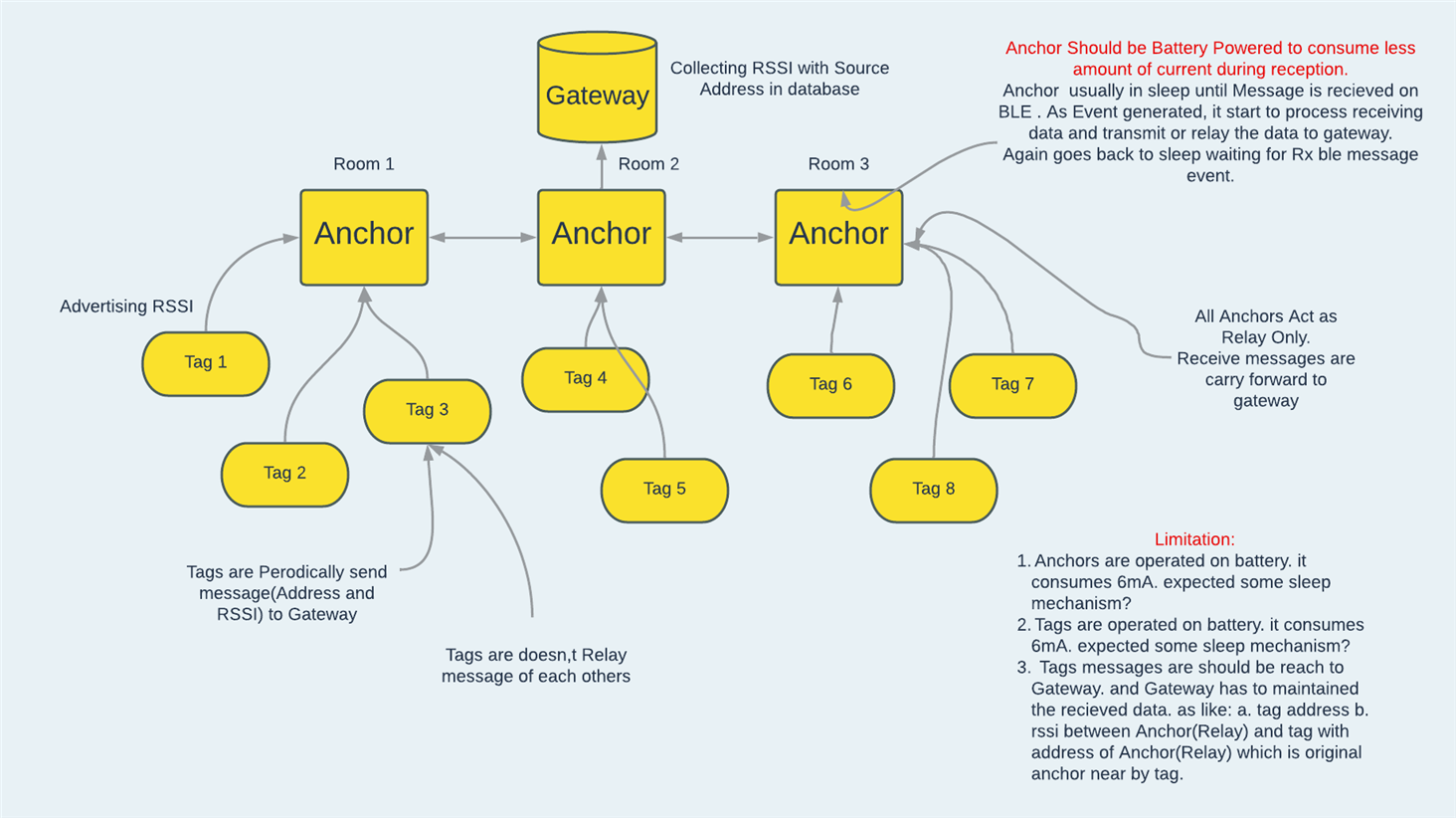Hi,
i am using nrf connect extension in vs code with Zephyr OS build v3.2.99-ncs2 and Nrf connect SDK 2.3.0. Our Application requirement as Shown in below Image.

Anchor: Sleep -> Wakeup on BLE event -> Receive message and Process data -> Message Carry forward to Gateway-> Goes back to sleep. Anchors are Battery Powered. how can i achieve sleep mechanism with nrf52832 soc? because continuous reception leads to more power consumption. it drained out battery very quickly. are there any available example on sleep in reception of BLE Mesh?
Problem in Flooding messages on Anchor side: How can i prevent from flood of messages ?
Regards
Abhishek
